The Institute for the Study of World Racial Justice Names Campus Directors
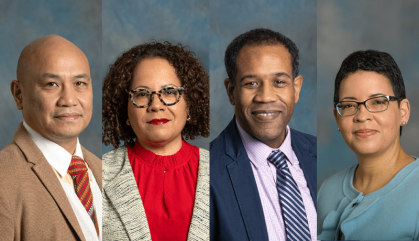
The Institute for the Research of Worldwide Racial Justice at Rutgers (ISGRJ) named four of the university’s most distinguished tutorial scholars in civil legal rights, history, literature, and creative creating as administrators of campus branches across the college and released a postdoctoral program supporting analysis in anti-racism and social inequality.
The directors, who will lead the institute’s operate at Rutgers College-New Brunswick, Rutgers College-Newark and Rutgers University-Camden, will use humanistic theories, solutions and methods to research world difficulties of race and social justice.
“Higher education and learning must reveal how racism has been normalized by way of the historic and present-day narratives of some of its most less than-appreciated citizens,” states Prabhas Moghe, govt vice president of Educational Affairs at Rutgers. “By thoroughly inspecting the different types through which racism proceeds to invade our tradition and all of our institutions, by encouraging conversations and wondering all-around the lived encounters and policy artifacts of injustice in a wide range of dimensions, Rutgers and this new institute collectively stand poised to create a unique system of scholarly depth and public impression and will deliver exclusive point of view on how we can fortify the motion towards resistance and adjust and ultimately build a considerably less polarized and more just culture.”
The institute, funded by a $15 million five-yr grant from The Andrew W. Mellon Basis, will aid just one-year conditions for 5 postdoctoral scholars engaged in investigation and creating.
“The institute is fully commited to the development of areas for scholars not only for scholarly inquiry but also for the mutual sharing of know-how between the college and its surrounding communities,” says Michelle Stephens, the institute’s founding govt director and a professor of English and Latino and Caribbean reports in the School of Arts and Sciences at Rutgers-New Brunswick.
The members of the leadership staff who will oversee institute exploration initiatives in these places as coverage reform, K-12 education and learning, social justice perform, community health and fitness and felony justice, and aid inspire a new technology gravitating towards social justice and inclusiveness, incorporate:
Erica Armstrong Dunbar, Rutgers-New Brunswick director
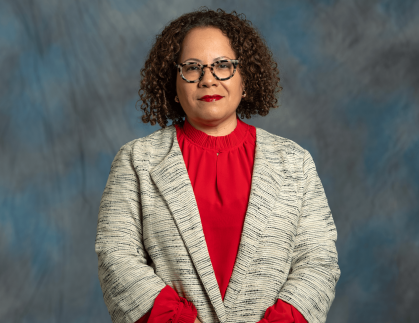
Dunbar is the Charles and Mary Beard Distinguished Professor of Record in the Faculty of Arts and Sciences. A social historian, Dunbar also serves as the countrywide director of the Association of Black Women Historians.
Dunbar scientific studies the lives of ladies of African descent in America during the eighteenth and nineteenth generations, concentrating on slavery, racial injustice and gender inequality. Dunbar states she marvels at the extraordinary triumph of survival and the beautiful background of resistance.
“I fully commited myself to telling the tales of Black gals who lived, loved, struggled, worked, prayed and fought to endure in a country that continue to recognized several of them as property,” states Dunbar, a finalist for the Countrywide E book Award in Nonfiction in 2017 and a winner of the Frederick Douglass Ebook Prize who obtained her undergraduate degree from the College of Pennsylvania and her master’s and doctoral degrees from Columbia University.
Her new purpose, she states, will come at an important instant in history when persons across the planet are demanding social justice.
“The chance to invite other dedicated humanists to Rutgers to join with us in considering deeply about main coverage problems that confront us currently is a exceptional and welcomed possibility,” she states.
Elise Boddie, Rutgers-Newark director
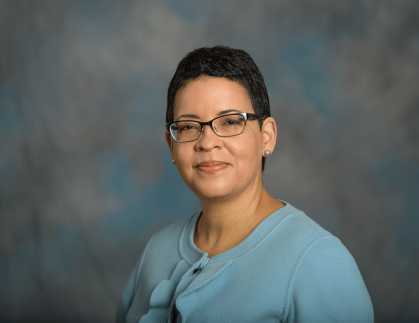
Boddie is a Henry Rutgers professor, professor of regulation and Choose Robert L. Carter Scholar at Rutgers Law School in Newark. Boddie studies how race is utilised to exclude people today from daily spaces. Her route-breaking post about it gained the Regulation and Society Association’s John Hope Franklin prize in 2012.
Drawing on her litigation experience at the NAACP Authorized Protection & Academic Fund, Boddie also researches devices in law and plan that perpetuate racial inequality. One of her tasks for the institute is exploring dynamic approaches to intervene in systems and disable them.
So far, she has targeted on college segregation. “Most men and women do not imagine of segregation as a procedure,” she suggests, “but it undermines opportunity in multidimensional strategies and its effects are intergenerational.” In recognition of her operate, final calendar year the City League of Essex County gave her its Whitney M. Younger, Jr. award.
Boddie, who acquired her undergraduate diploma from Yale and her regulation and policy degrees from Harvard, has authored quite a few articles, essays, book chapters and op-eds and is at the moment working on a book.
“I’m hunting forward to collaborating with colleagues from various disciplines across the university. Racial inequality is so advanced and longstanding that we need to have a spectrum of tips to tackle it.”
Gregory Pardlo, Rutgers-Camden codirector
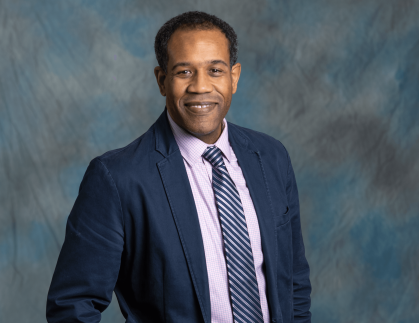
Pardlo is an affiliate professor of artistic writing and director of the MFA software in the Section of English at Rutgers-Camden. A poet and memoirist, Pardlo gained the Pulitzer Prize in 2015 for his poetry assortment, Digest.
The to start with in his household to go to higher education, Pardlo completed his undergraduate degree at Rutgers-Camden after a temporary stint in the Marine Corps Reserves, a calendar year residing overseas and 4 a long time handling a jazz club. He has an MFA from New York College as a New York Moments Fellow in Poetry and an MFA in nonfiction from Columbia College.
Pardlo is fascinated in how writers craft their resourceful visions to influence readers’ social perceptions.
“If the characters we make appear simply as stand-ins for some cultural assumption or stereotypical inference, then we are contributing to a eyesight of the globe that devalues the personal,” states Pardlo. “It tends to make me excited to believe that the Institute for the Study of International Racial Justice will present a rigorous and collaborative room where by worries about the craft of creating like this can be taken up in earnest pursuit of serious-globe application.”
Patrick Rosal, Rutgers-Camden codirector
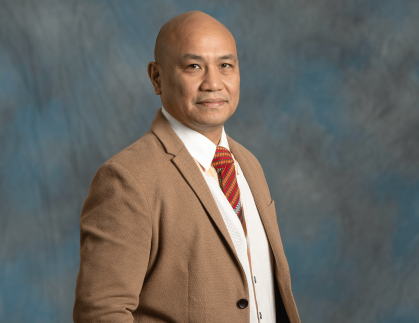
Rosal is a professor of resourceful crafting in the Office of English at Rutgers-Camden. A writer, poet and interdisciplinary artist, Rosal gained an MFA from Sarah Lawrence Faculty and attained fellowships from the John Simon Guggenheim Basis, the Nationwide Endowment for the Arts and the Fulbright Senior Investigate Method.
Born and raised in New Jersey to mother and father who arrived to the United States from the Philippines, all through a time when just about all Filipinos were excluded from immigration into the U.S., Rosal uncovered firsthand how it felt to be component of a marginalized community.
“From early in my existence, I witnessed the interplay of the nearby and the world,” claims Rosal, who has penned about race and otherness. “And I definitely witnessed the techniques that art — including storytelling and song — ended up loaded with racialized perceptions.”
Rosal believes that 1 aim of the racial justice movement is to discover a way to choose care of every other and guard the land we share.
“How do we get with each other and think about what that treatment appears to be like like?” he asks. “The ISGRJ may let us to request these issues in quite distinct nearby contexts as effectively as worldwide kinds, specifically with the richness of a put like New Jersey.”





